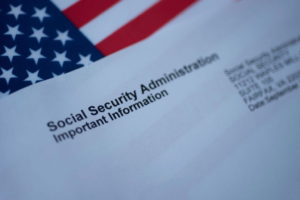
USCIS Proposes to Increase Fees Again
Sep 29, 2010
U.S. Citizenship and Immigration Services seeks public comment on proposal to adjust fees for immigration benefits. Dallas immigration lawyer Stewart Rabinowitz weighs in on what he regards as the opposite of “value-added.”
Dallas, TX (Law Firm Newswire) June 25, 2010 – – U.S. Citizenship and Immigration Services (USCIS) is seeking public comment on a proposed federal rule that would adjust fees for immigration benefit applications and petitions. The proposal, posted to the Federal Register on June 9, 2010, for public viewing, would increase overall fees by a weighted average of about 10 percent but would not increase the fee for the naturalization application.
USCIS is a fee-based organization with about 90 percent of its budget coming from fees  paid by applicants and petitioners to obtain immigration benefits. The law requires USCIS to conduct fee reviews every two years to determine whether it is recovering its costs to administer the nation’s immigration laws, process applications, and provide the infrastructure needed to support these activities. This proposed rule results from a comprehensive fee review begun in 2009.
paid by applicants and petitioners to obtain immigration benefits. The law requires USCIS to conduct fee reviews every two years to determine whether it is recovering its costs to administer the nation’s immigration laws, process applications, and provide the infrastructure needed to support these activities. This proposed rule results from a comprehensive fee review begun in 2009.
“We are mindful of the effect of a fee increase on the communities we serve and have worked hard to minimize the size of the proposed increase through budget cuts and other measures,” said USCIS Director Alejandro Mayorkas. “Requesting and obtaining U.S. citizenship deserves special consideration given the unique nature of this benefit to the individual applicant, the significant public benefit to the nation, and the nation’s proud tradition of welcoming new citizens. Recognizing the unique importance of naturalization, we propose that the naturalization application fee not be increased.”
But Dallas immigration attorney Stewart Rabinowitz does not concur with Mayorkas, or with the underlying premise of fee increases for services not well rendered.
“Most people associate a fee increase with an improvement in service, not a greater expense for worse service,” countered Rabinowitz, “Yet today, the USCIS’s culture of saying ‘no’ in its decision-making thrives. USCIS has even developed new reasons to say ‘no’ adding an element of uncertainty to case adjudications which previously were straightforward. It recently issued the Neufeld H-1B memo which skirts the regulatory process and is of questionable authority as a basis for denying IT staffing H-1B petitions. It has made it nearly impossible gaining an approved L-1B petition by applying standards which are much higher than those set forth in USCIS’s own regulations. Even fixing simple USCIS errors on the face of an approval notice remains an exercise in frustration.”
To learn more, contact a Dallas immigration lawyer or Dallas Immigration Attorney at Rabinowitz & Rabinowitz, P.C., call 1.972.233.6200 or visit http://www.rabinowitzrabinowitz.com.
Rabinowitz & Rabinowitz, P.C.
14901 Quorum Drive, Suite 580
Dallas, Texas 75254
Phone: 972.233.6200
- Sept. 24, 2010: H-1B Visa Numbers Remain Available
USCIS reports that as of September 24, 2010, it had receipted 39,600 H-1B petitions subject to the cap of 65,000, and had receipted 14,400 H-1B petitions for foreign nationals with U.S. earned masters or higher degrees. Federal law exempts the first 20,000 H-1B petitions filed for foreign nationals who have obtained U.S. master’s degrees or […] - Visa Bulletin, October, 2010
Number 25 Volume IX Washington, D.C.A. STATUTORY NUMBERS
1. This bulletin summarizes the availability of immigrant numbers during October. Consular officers are required to report to the Department of State documentarily qualified applicants for numerically limited […] - DREAM Act Legislation Does Not Clear Congress … but Remains a Dream
On September 21, 2010, the Senate failed to reach votes needed to consider the fiscal 2011 Defense Authorization Bill (S. 3454), the bill to which the DREAM Act was to be amended, and the bill failed. Although there is bi-partisan support for the DREAM Act, it has not successfully passed through either chamber of […]



